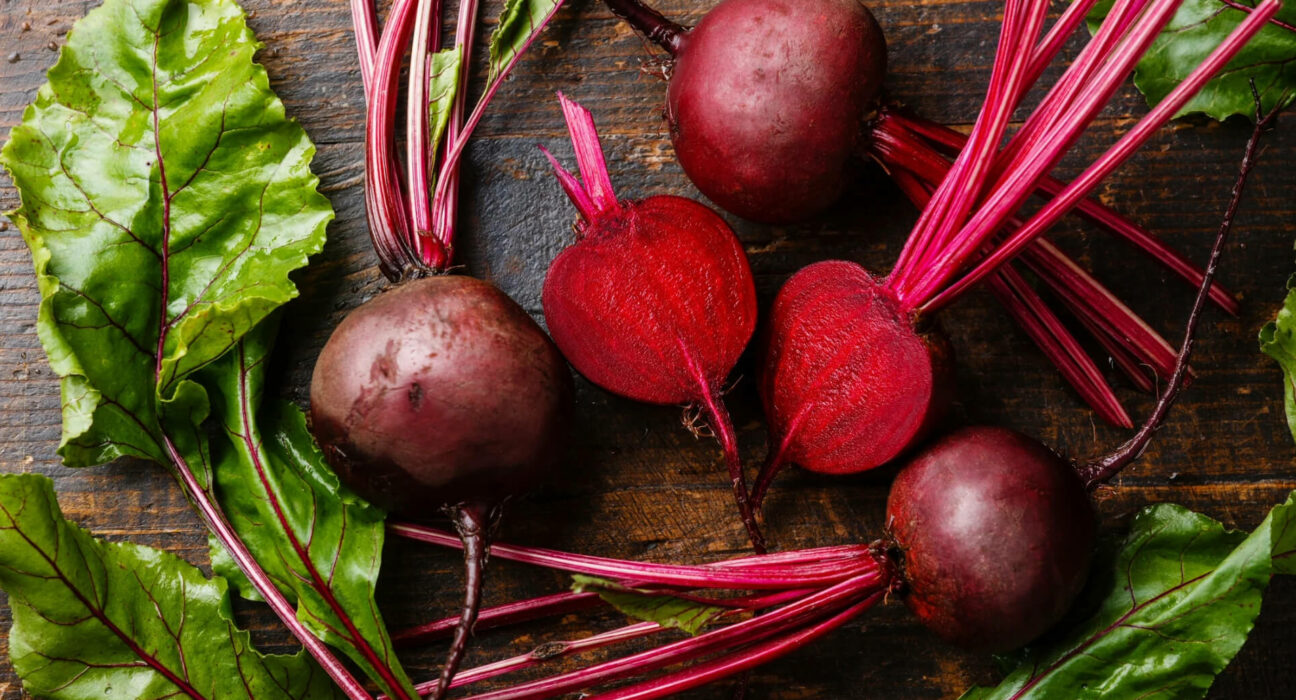Introduction:
Nature often conceals its most potent treasures in the humblest of appearances. Such is the case with beetroot, a vibrant, ruby-red vegetable that not only graces our plates with its rich color but also packs a nutritional punch that extends far beyond its visual appeal. In this blog, we’ll delve into the myriad benefits of beetroot, exploring its role in regulating blood pressure, enhancing athletic performance, and uncovering the science behind its remarkable properties.
1. Blood Pressure Regulation: The Nitric Oxide Connection
One of the standout features of beetroot is its ability to support cardiovascular health by regulating blood pressure. This can be attributed to the high nitrate content found in beetroot. When consumed, these nitrates are converted into nitric oxide, a molecule that relaxes and dilates blood vessels, promoting improved blood flow.
2. Enhancing Athletic Performance: A Natural Performance Booster
For athletes and fitness enthusiasts, beetroot has emerged as a natural and legal performance enhancer. The nitric oxide produced from beetroot consumption widens blood vessels, increasing oxygen delivery to muscles. This enhanced oxygenation can improve exercise performance, delay fatigue, and contribute to better endurance.
Research suggests that athletes who incorporate beetroot juice into their pre-exercise routine may experience increased stamina and reduced perception of effort during physical activities. This makes beetroot a potential secret weapon for those looking to optimize their workouts and achieve peak performance.
3. Rich in Antioxidants: Guardian Against Oxidative Stress
Beetroot is a nutritional powerhouse, boasting a rich array of antioxidants, including betalains and polyphenols. These compounds play a crucial role in neutralizing harmful free radicals in the body, thereby protecting cells from oxidative stress.
Antioxidants not only contribute to overall health and well-being but also have anti-inflammatory properties. Incorporating beetroot into your diet can assist in maintaining a balanced inflammatory response, potentially reducing the risk of chronic diseases associated with inflammation.
4. Aiding Digestive Health: Fiber and Beyond
Beyond its cardiovascular benefits, beetroot is an excellent source of dietary fiber. Fiber is essential for digestive health, promoting regular bowel movements and preventing constipation. Additionally, the betaine content in beetroot supports the liver’s detoxification processes, contributing to overall digestive well-being.
5. Nutrient-Rich and Low in Calories: A Smart Addition to Any Diet
Beetroot is not only a low-calorie food but also packed with essential nutrients. It contains vitamins such as folate, vitamin C, and vitamin K, as well as minerals like potassium and manganese. Incorporating beetroot into your diet can be a smart and flavorful way to ensure you’re meeting your nutritional needs without excessive caloric intake.


Conclusion:
In conclusion, the benefits of beetroot extend far beyond its delightful color and earthy flavor. From regulating blood pressure and enhancing athletic performance to providing a wealth of antioxidants and supporting digestive health, beetroot has rightfully earned its place as a nutritional powerhouse. Whether enjoyed raw, cooked, or juiced, this versatile vegetable stands as a testament to the wonders nature holds for those willing to explore and harness its potential for better health and vitality.












